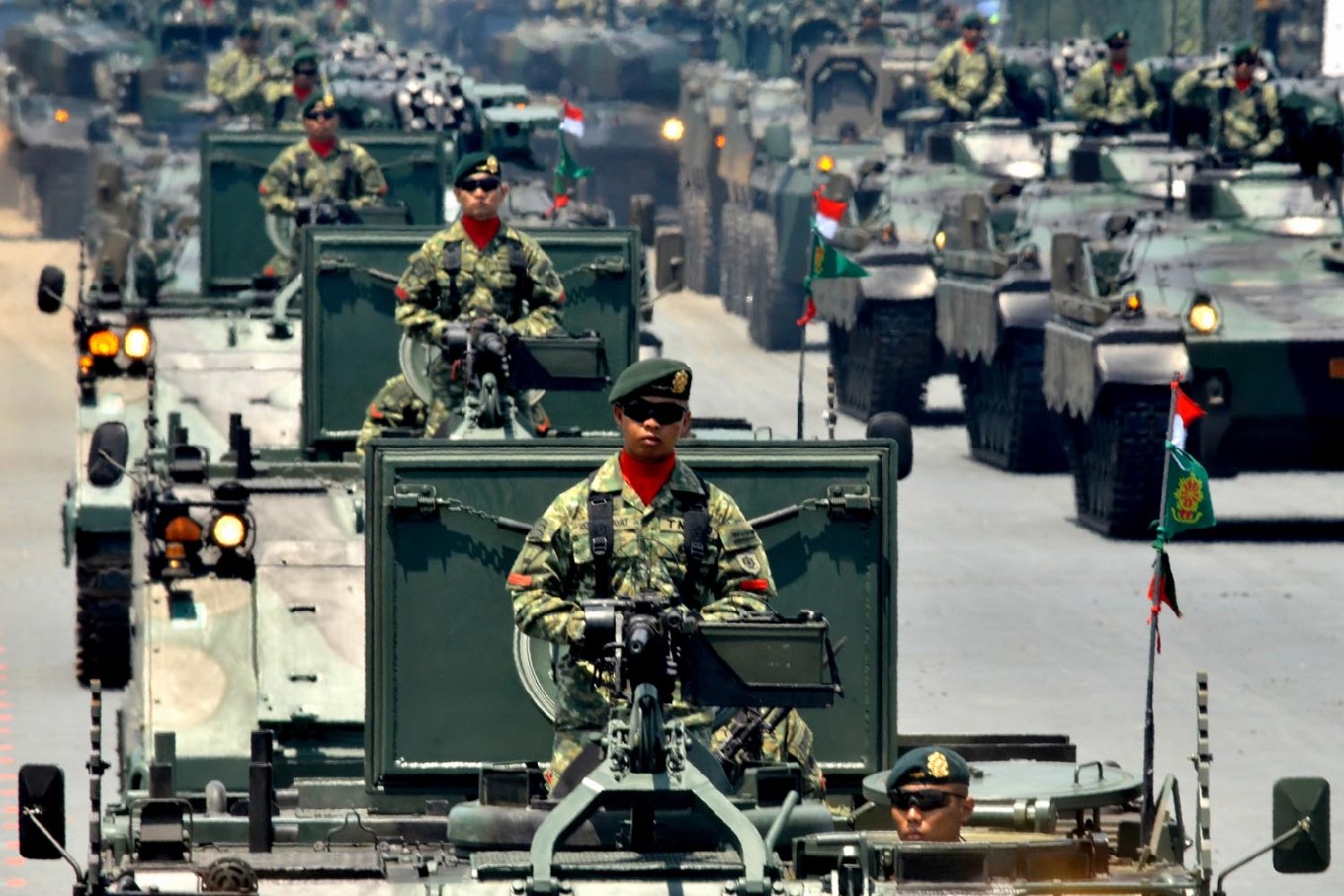Popular Reads
Top Results
Can't find what you're looking for?
View all search resultsPopular Reads
Top Results
Can't find what you're looking for?
View all search resultsEnduring power struggle
After 20 years of democracy, the potential return of the military into civilian affairs is an issue the country has yet to settle.
Change text size
Gift Premium Articles
to Anyone
A
fter 20 years of democracy, the potential return of the military into civilian affairs is an issue the country has yet to settle. The ongoing plan to allocate civilian posts to active military officers constitutes a power struggle that marks relations between the two elements of the infant democracy.
In response to the problem of overstaffing in the Indonesian Military (TNI), President Joko “Jokowi” Widodo recently raised the idea of amending the 2004 Military Law as a constitutional channel to solve the lingering problem of numerous jobless officers in the military. The quick fix, although constitutional, has been met with opposition, particularly from civil society organizations.
In our special report today, a number of civil society activists pinpoint that any amendment that gives active military officers more options for civilian jobs will do Indonesian democracy more harm than good as the impacts will be overarching. All in all, they say, the proposed revision of the law would pave the way for the return of dwifungsi (dual function), the military doctrine imposed during the New Order regime of president Soeharto that justified the military’s involvement in almost every aspect of people’s lives and built the armed forces as the most powerful entity in the country.Dwifungsi helped Soeharto rule for more than 30 years, at the expense of democracy.
In contrast to the government’s approach to solving the overstaffing problem, the civil society activists have come up with the idea of establishing a clear road map for military reforms, one key element behind reformasi, while citing that the already imposed reforms obviously lacked vision, agendas and clear schemes on how the post-Soeharto military and the post-Soeharto Indonesia should be.
The activists reminded all stakeholders of points of recommendations issued by four notable figures — Nahdlatul Ulama chairman Abdurrahman “Gus Dur” Wahid, Muhammadiyah chairman Amien Rais, Indonesian Democratic Party of Struggle (PDI-P) chairwoman Megawati Soekarnoputri and Yogyakarta Governor Hamengkubuwono — soon after Soeharto stepped down in May 1998. Among the key points were the recovery of the mandate to the people and the abolition of dwifungsi.
Settling the issue of overstaffing in the TNI is not as simple as giving jobs to hundreds of idle middle- and high-ranking officers, as it concerns military reform. Proper solutions to the problem should not be partial, but comprehensive, long-term and involve all relevant stakeholders, which includes civil society.










